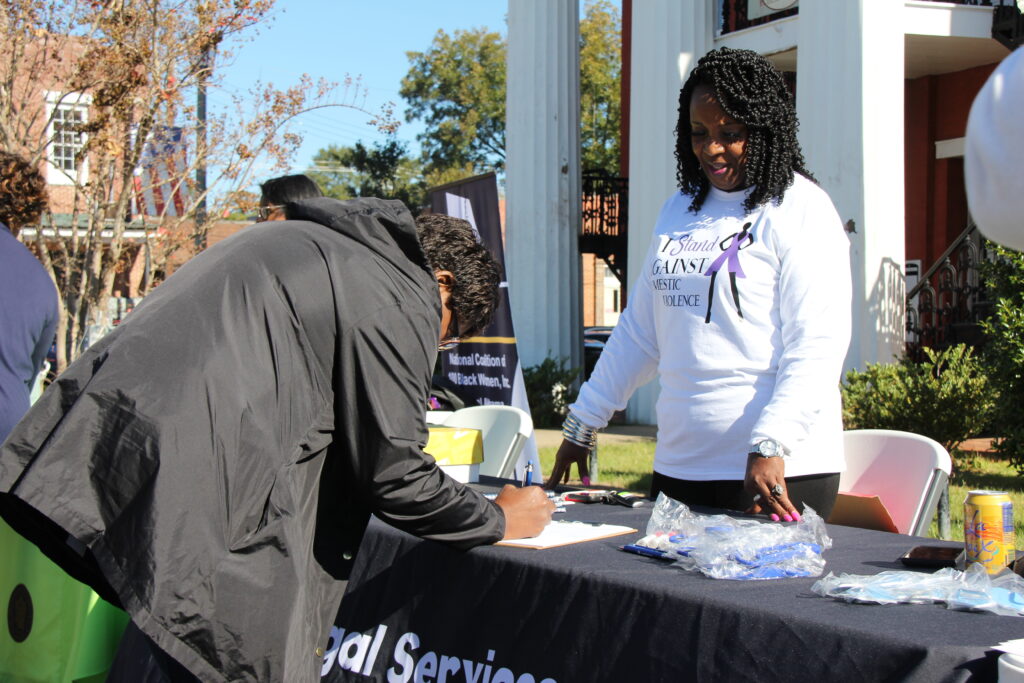Domestic Violence Resources
Select from the subjects below to access helpful information and resources.
Are you experiencing any of the situations listed below?
Click the arrow to the left of each item to learn more.
It involves the use of physical violence, or threats of it, to maintain power over an individual. Because of this, survivors are afraid and uncertain when more abuse will occur. This often reinforces the regular use of other, more subtle, types of abuse.
These behaviors are often more subtle and hard to identify but are just as serious as other types of abuse.
This often involves acting in a way that is non-consensual and forced.
Examples include:
Stalking may occur from someone you know, a past partner, or a stranger. This can include different types of abuse.
This behavior is often a form of verbal or emotional abuse conducted online.
Examples include:
We lead presentations, staff tables at resource fairs, and offer legal clinics and other outreach at events targeting survivors of domestic abuse and violence.
If you are a service provider for residents with low incomes or survivors of abuse and would like us to speak to your team or your clients about what Legal Services Alabama does to support Alabamians struggling with partner violence, please contact us.
For more information, contact Communications Manager, J. Jackson at jjackson@alsp.org

Phone lines are open 8:30am-4:30pm, Monday-Friday
